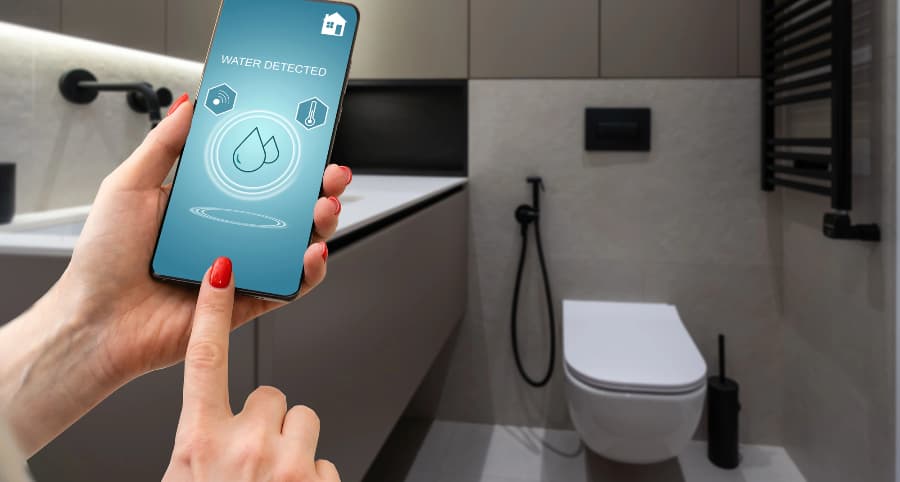How does a water sensor work and why install one with your Cleveland smart home?

One small leak in your home can cause big issues and thousands of dollars in damage. You have to protect against this threat; luckily, there’s a simple way to do so. A water sensor is a simple, effective, and economical solution. Learn how they work and why you should connect water sensors to your Cleveland smart home.
How water sensors shield Cleveland properties
Water penetrates homes in numerous ways, whether from a plumbing issue, storm-related event, appliance snafu, or human error. No matter how it takes place, you have to know immediately, and this is how water sensors help. But how do they really work?
The majority of water sensors are conductive and function with corresponding electrodes. When water invades the area between the electrodes, an electrical link is formed, triggering your alarm. You’ll also find capacitive sensors that emit an electrical field. When water reaches the conductive parts of these sensors, the field is interrupted, and your alarm sounds. Optical sensors using infrared LED light are another choice.
Some water sensors give you more
A few specialized water sensors provide even more protection as they feature built-in temperature sensors. This is an effective way to prevent frozen pipes. If there’s a severe decrease in temperature, you’ll be notified at once. Taking measures before pipes burst will protect you from water infiltration and exorbitant repair costs.
Why integrate water sensors into your Cleveland smart home?
When water problems occur, you need to be alerted at once. You can attain this goal by integrating water sensors into your smart home. Whether you’re there to hear the alarm or away, you’ll get an immediate notification on your mobile device. As an additional backup, your round-the-clock monitoring team will be informed. Every second is critical in a water emergency to limit the destruction and interruption to your household.
Where should you place water sensors?
Any location prone to flooding is a suitable position for water sensors. Place them in these areas:
- Bathrooms: Place next to tubs or in back of toilets.
- Basements: Water frequently enters basements through damaged walls or due to excess rain or broken sump pumps.
- Near water heaters or appliances: Any water-using appliance might eventually leak.
- Underneath sinks: Water sensors are great for discovering plumbing leaks in place you can’t see.
- Attics: Detect roof leaks promptly and avoid costly repairs.
Request water sensors with your Vivint smart home
Give your home the robust protection it requires with innovative components from Vivint. Our water sensors in Cleveland connect to your Vivint smartphone app to provide immediate alerts when your alarm goes off. You also benefit from incorporated temperature sensors to avert frozen pipes. Learn more about the smart home tools available in Cleveland by calling (216) 616-8604 today.